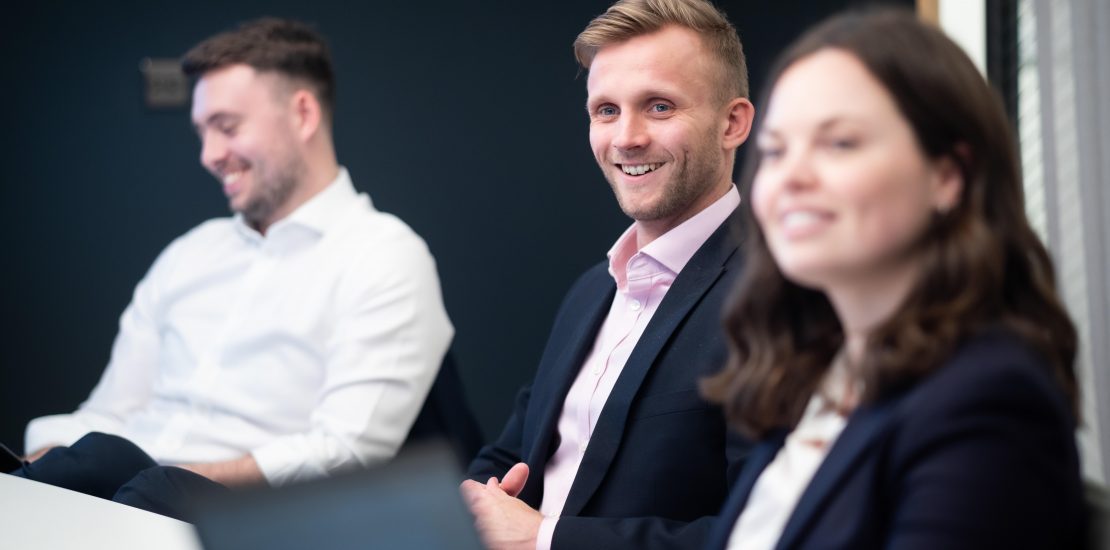- April 12, 2022

A modern career in consulting
The word consultant can be defined as ‘a person who gives professional or expert advice’ and is derived from the Latin consultare, meaning to deliberate or consult. And this is where the profession of consulting originated, people who were experts in a field would share their experience and provide advice to businesses, organisations or groups, professionally.
Consultants are no longer the ‘all seeing, all knowing’ experts on an area who get brought into an organisation to impart their knowledge in various formats (reports, workshops, training session, etc.)
Consultants have now become experts in skills; in problem solving, critical analysis, communication, making the complex simple and working with their clients to create and develop solutions and, in Managementors case, implement them to realise benefits and improvements. The analogy I often use with my friends, colleagues and sometimes clients when I am challenged on ‘what do you know about sector X or business Y to be able to improve it’, is that great sports people like Tiger Woods and Serena Williams have won many more majors than all of their coaches, yet they still use a coach, often more than one. Someone who could challenge them, spend time analysing training sessions and matches when the athlete is focusing on recovery or more training, or planning sessions and facilitating whatever is required to get those individuals to their goals. That is what we, as consultants, have to become experts at; working with the people or group doing the ‘thing’ (e.g. running the business, performing the tasks, managing the team), combined with our experience and learning from other engagements and projects to enable the client to realise their full potential.
This ‘modern consultant’ concept has created a challenge for the business they work for, the consultancies. That challenge being, ‘how do we develop our employees into the best consultants they can be, while delivering high quality results and value to clients?’ Whilst training can be given in problem solving, data analysis, change management methods, and understanding how to work with people, amongst a plethora of other hard and soft skills, not everything can be learned in a classroom and often requires ‘learning on the job’ (as much as it pains me to say that phrase). It requires a very careful balance of stretching the individual in real situations, supporting them to learn and develop along the way, all while ensuring the highest quality or delivery for our clients. If I were to use a different analogy to my previous coaching analogy, one of someone learning to sky dive, we don’t want to throw a young consultant out of a plane with an elite parachute and assume they know what cord to pull and how to fly it, as they can’t fly in tandem forever. Now you see the balance that’s required and the desire for competing firms to accelerate this process as much as possible for business success and excitement and motivation of the individuals.
How does this apply / effect MM?
At Managementors, we are no different. We want and need excellent people who are keen to learn and develop into great consultants and who want to succeed. We’re in a brilliant position as we’re on an exciting journey of growth as a business and, to maximise the opportunity, we’ve had to think hard about not only how we accelerate but also control this development journey so everyone benefits. We have worked to develop and increase visibility of our role structures, created clear development pathways, transparent salary banding and additional role layers to enable and support rapid but controlled progression.
This business growth, along with visibility and clarity of structure that’s been put in place, is a massive plus for us and opens up huge opportunities for our people to develop, progress and grow with the company.
My journey
This has all been quite general, so why have I bothered to write about it? I joined MM for exactly this reason – I wanted to be part of their growth journey and I wanted to benefit from it. I can safely say, I have done both of those things and have loved doing it. I have worked on numerous client engagements, as well as being heavily involved in internal improvements and have been stretched but brilliantly supported at all points. I have not just been tossed out of the plane; I have felt like I’ve had a spare parachute and someone in the air with me at all times, just in case.
It’s very exciting times here at Managementors and I am pleased to say that in the few days that I have been writing this blog, I have just been formally promoted to Programme Director, 6 months ahead of my development plan, perfectly demonstrating the concept in action!
- Written by Ed Durkin, Programme Director
